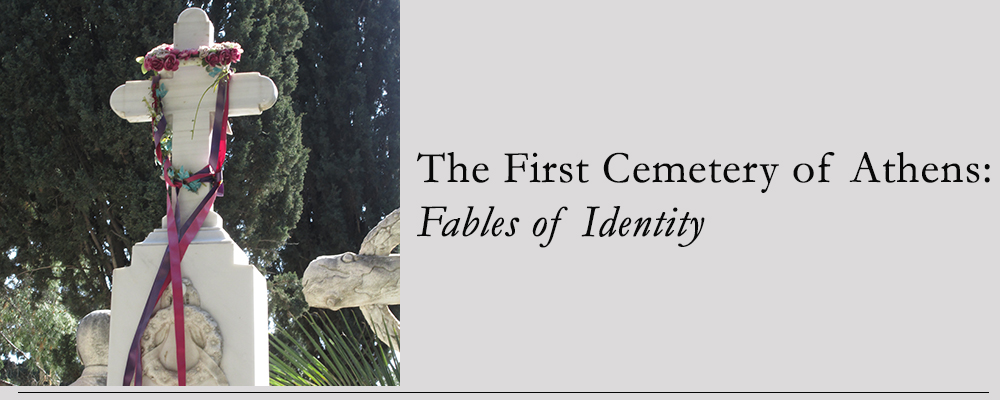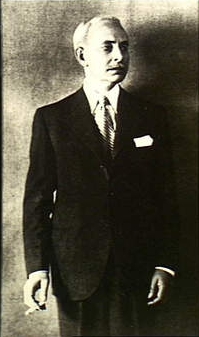Alexandros
Koryzis ΑΛΕΧΑΝΔΡΟΣ ΚΟΡΙΖΗΣ
Born
1885
Died April 18, 1941
Plaza, Number 43
One of the
great pleasures of this blog project for Filia and I has been coming across a
disconcerting (at least to us) story about
persons buried in the First Cemetery and, by investigating, coming to
understand how their story fits into the
rich mosaic that is modern Greece.
Alexandros
Koryzis, a banker turned politician, was Greece’s Prime Minister for only 80 days
before the dramatic events of April 1941 proved too much for him to handle.
Just 12 days after Germany invaded
Greece but before they actually reached Athens, Koryzis entered his study and
shot himself twice- in the heart.
His life:
Alexandros Koryzis came from
the area of Poros -Troizan with the usual credentials: a political father and a
forefather who had fought in the War of Independence. After studying law, he joined the National Bank of Greece, and rose in
the ranks. For a time he acted as a financial advisor to the governor of Smyrna
when it briefly came under Greek influence before the 1922 Smyrna debacle. (1)
He was prominent, intelligent, debonair, and respected.
Like many
Greek people in 1936, Koyzis welcomed the stability offered by the dictatorship
of Ioannis Metaxas and was tagged by him to be his Minister of Health and Welfare, a
post he held for three years, until 1939. Metaxas’ plan for pensions and health
care were extremely popular and Koryzis could take credit for some of that. Nonetheless,
in 1939 he resigned and returned to banking, becoming the Governor of the
National Bank.
Then, Metaxas
died unexpectedly on January 29, 1941 at a critical and dangerous point in
Greece’s history. It took only hours for
King George II to appoint Koryzis to fill the vacuum left by Metaxas’ death. (2)
To call this moment in Greek history chaotic
would be an understatement. Any
vestige of parliamentary democracy had been in
the deep freeze since 1936 and the Germans were gathering on the
Greek-Bulgarian border to aid their Italian allies who had recently been so
soundly defeated by the Greek army. The English were trying to decide how much
help they should or could offer (10,000 allied army personnel were already in Greece) and Koryzis had to
decide whether or not to accept any proffered help, whether to pull troops from
the Albanian front to meet the German threat – or even whether the German threat
was real! Unlike us, he did not know what was about to happen. (3)
It was a nightmare. Saying ‘no’ to the German juggernaut
was quite a different proposition from saying no to the Italians in 1940 - although
Koryzis finally did say ‘no’. but to
no avail. The Germans invaded.
Was it
Suicide?
Perhaps suicide was a logical choice for an
inexperienced leader under the pressure he was experiencing, but the circumstances
surrounding this suicide have since raised questions. Foremost among them was how
he had managed to shoot himself twice in
the area of the heart.
Secondly, there
was no autopsy.
Then there was a
mysterious meeting between Koryzis and the king earlier
in the day that had not gone well at
all. Apparently Koryzis left this meeting upset enough for the concerned
king to send his son to his home to see how he was faring. The crown prince
arrived just in time to hear the shots.
What had
happened during that meeting? Some historians believe that Koryzis
had been told that day by the king of his decision to abandon Athens and move his
government to either Cyprus or Crete. That would have been depressing enough.
Another scenario has the king accusing Koryzis of
fraternizing with a woman who was, at the time, having an affair with a spy from
the German embassy. If true, it could have been construed as a traitorous act. This theory has him being murdered as a
liability. Farfetched, - but not entirely ridiculous because of those two shots.
(4)
His death was
presented to the public as a heart attack –a diagnosis
that must have appealed to the dark sense of humour of those in the
know.
The public announcement of his death
It would hardly have done to announce to the Greek people
at this critical juncture that the leader who had vowed upon his inauguration to
remain steadfast for his people had opted out days before German jackboots echoed
on the pavements of Athens.
The aftermath
of Koryzis’ suicide was horrible: the German occupation,
the flight of erstwhile parliamentarians who after 5 years of dictatorship no
longer had a core leadership or institution around which they could rally, and the
flight of the king and his family just days later. All this, of course, left
the people of Greece sailing into treacherous waters in a rudderless ship.
The Grave
Austere and serious, his name is etched on a marble
plaque set before the façade of a classical Greek temple in an area reserved
for Greek worthies. Its serenity is the
antithesis of both his death and the era he lived in.
The Map
Plaza, Number 43
Footnotes
(1) According
to the provisions of the Treaty of Sevres (August 1920), Smyrna was to be
administered by a local parliament and given the chance of a future plebiscite to
say whether they wished to join Greece or remain in the Ottoman Empire. The
treaty accepted Greek administration of the Smyrna enclave, although the area
remained under Turkish sovereignty.
(2) King George
II deserves his own text but will not get it. He is buried at the Tatoi Palace with
the rest of the Greek royal family. He and Metaxas were governing the country together
during this critical period. Parliamentary democracy was deemed unnecessary.
(3) A fascinating book by Robin Higham entitled Diary of a Disaster: British Aid to Greece
1940-41 highlights the uncertainty of leaders about what to do. If you
Google it, you will find enough on line to understand just what Koryzis was
facing when he took power. There is another intriguing aspect. These events
occurred in 1941. The Enigma code had already been broken and it is possible
that the British themselves knew exactly what
the Germans were planning– but they could
not come out and say so because the Germans would have realized that their
code was broken. So many ironies.
(4) Greece
is a country where conspiracy theories are given very free rein. For this one,
see www.anoixtoparathyro.gr/το-δεύτερο-όχι-ποιος-σκότωσε-τον-κορυζ/ Some have dismissed the
suicide scenario pointing out that Koryzis was buried with Orthodox rites but
this does not hold water. Orthodoxy is famous for its use of ‘economy’ – a
stretching of the rules for the greater good and, calling Koryzis’ death a
heart attack, was probably the
greater good at that moment. In any case, the Church, to its credit, has had an
admirable track record of translating suicide into temporary insanity and
allowing an Orthodox ceremony.
A footnote to
the footnotes: A delightful
square on Poros Island is today dedicated to Koryzis and his bust is its
centerpiece. Both can be found beside his island home which was donated by the family to
house the town’s archaeological museum. It's presence reminds me of a passage in Pausanias where he pointed out a
shrine to Podares, a Mantinean leader who had been defeated in a battle with Thebes. Greek history has had so many twists and turns, it seems that even defeated leaders can still be honored.
The square in Poros







I am so glad to see this post.
ΑπάντησηΔιαγραφήCast Bronze Plaques
Cemetery Markers